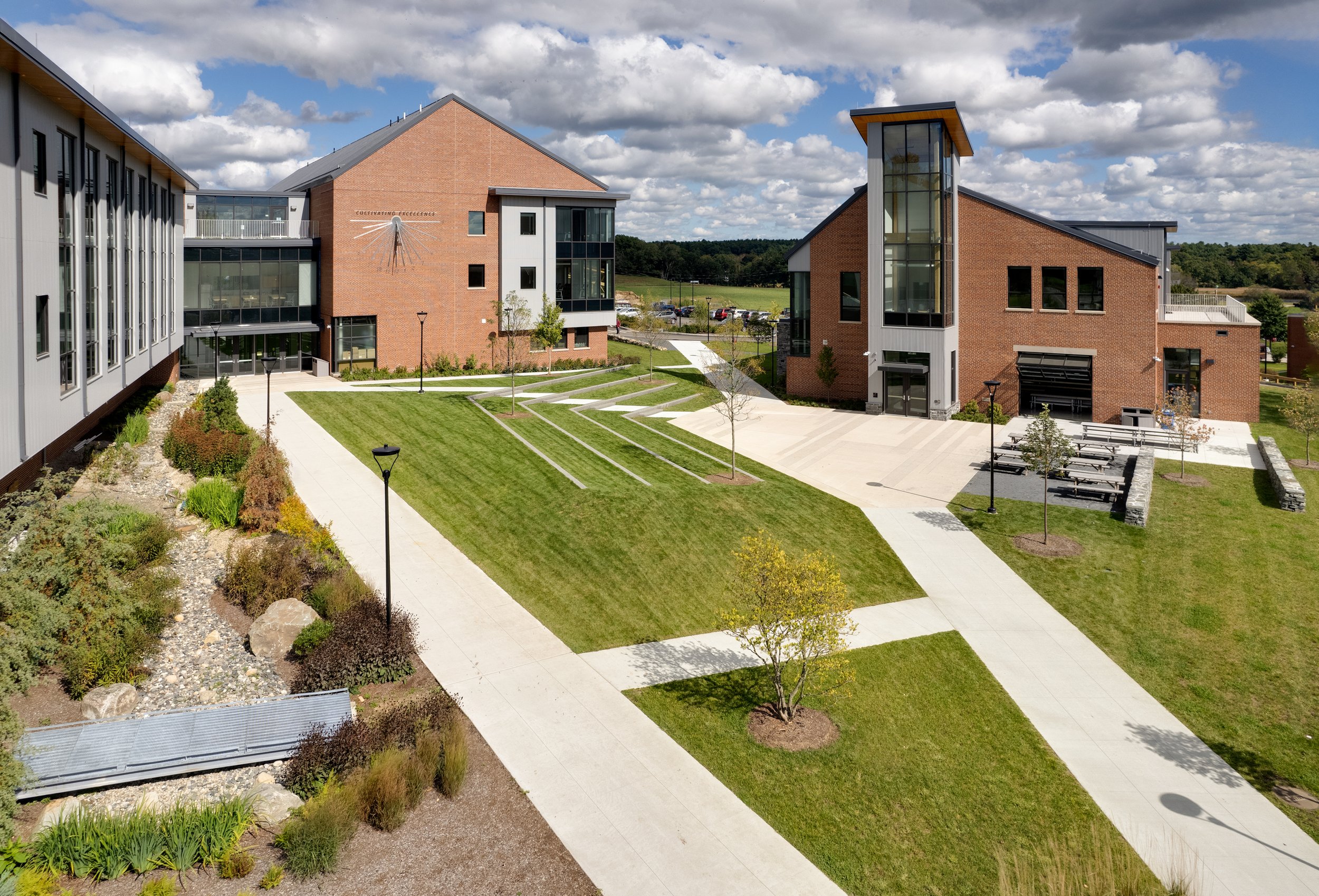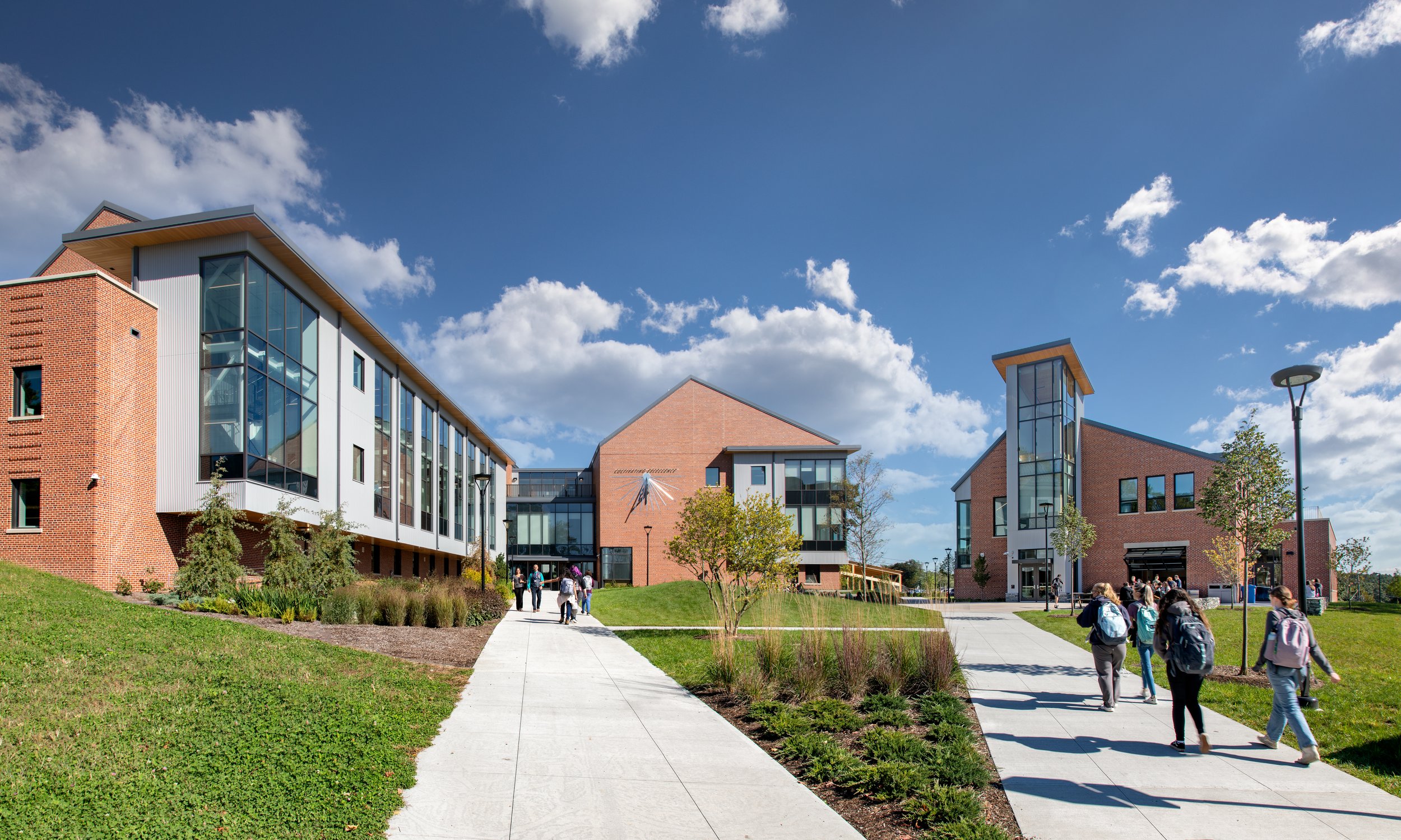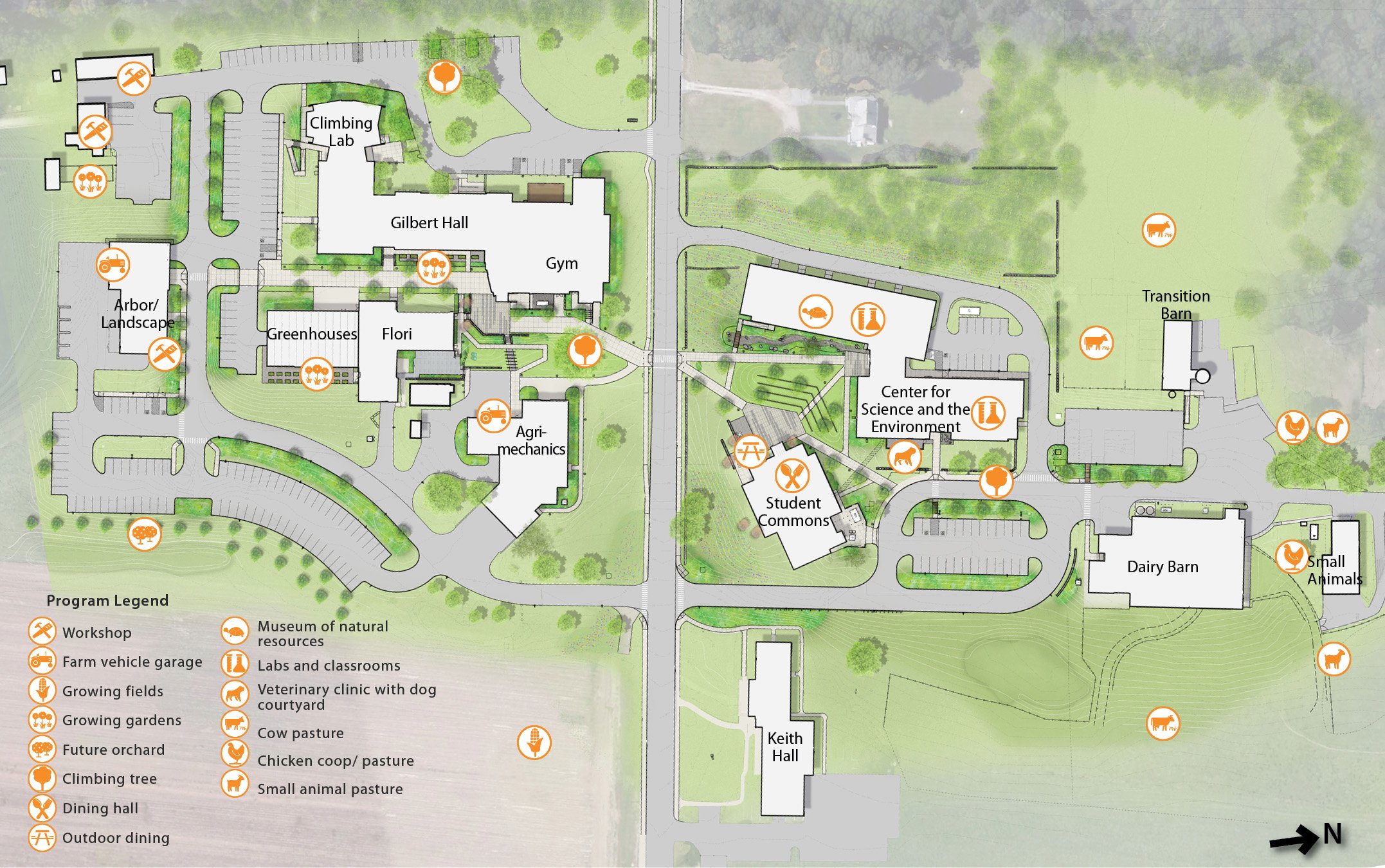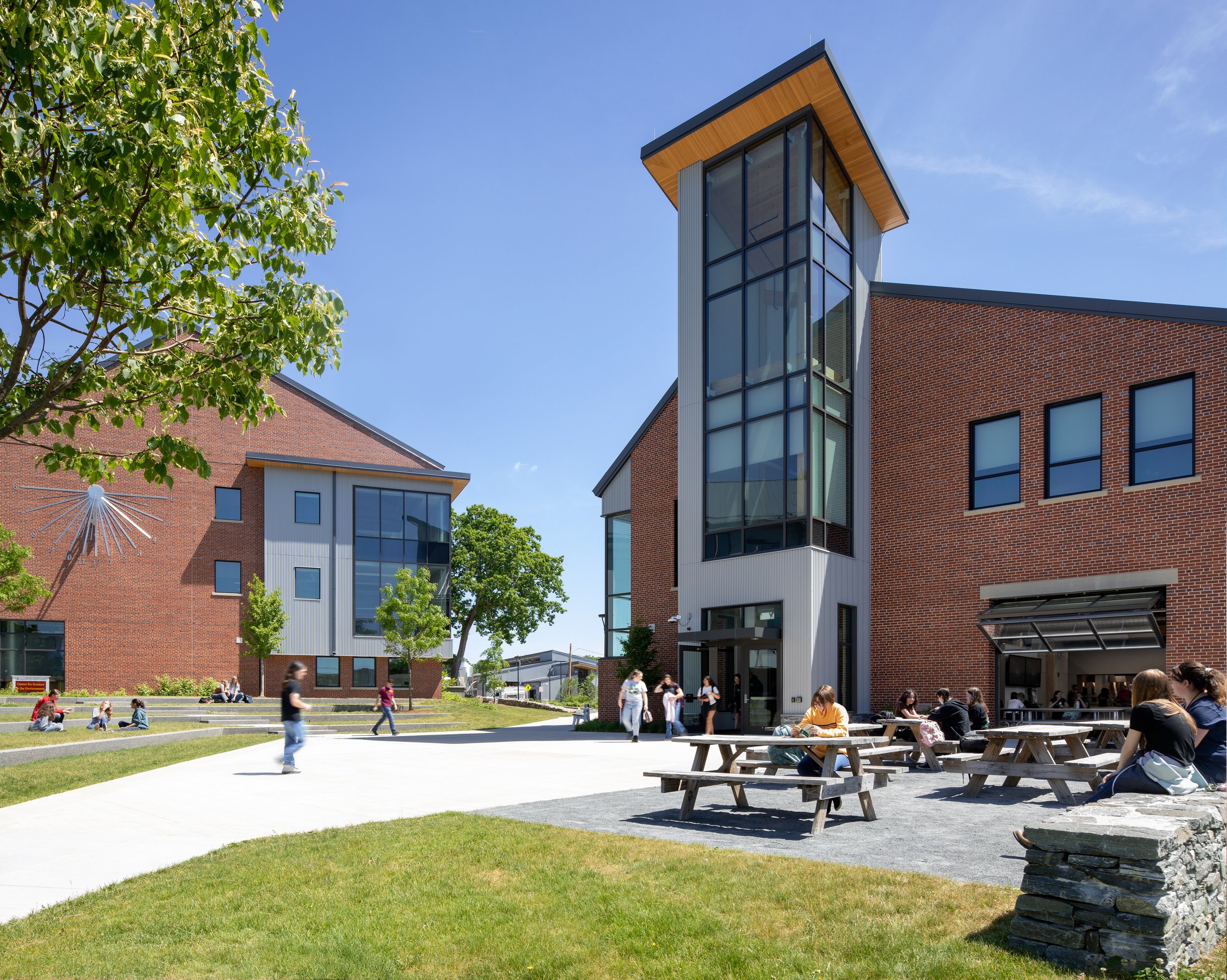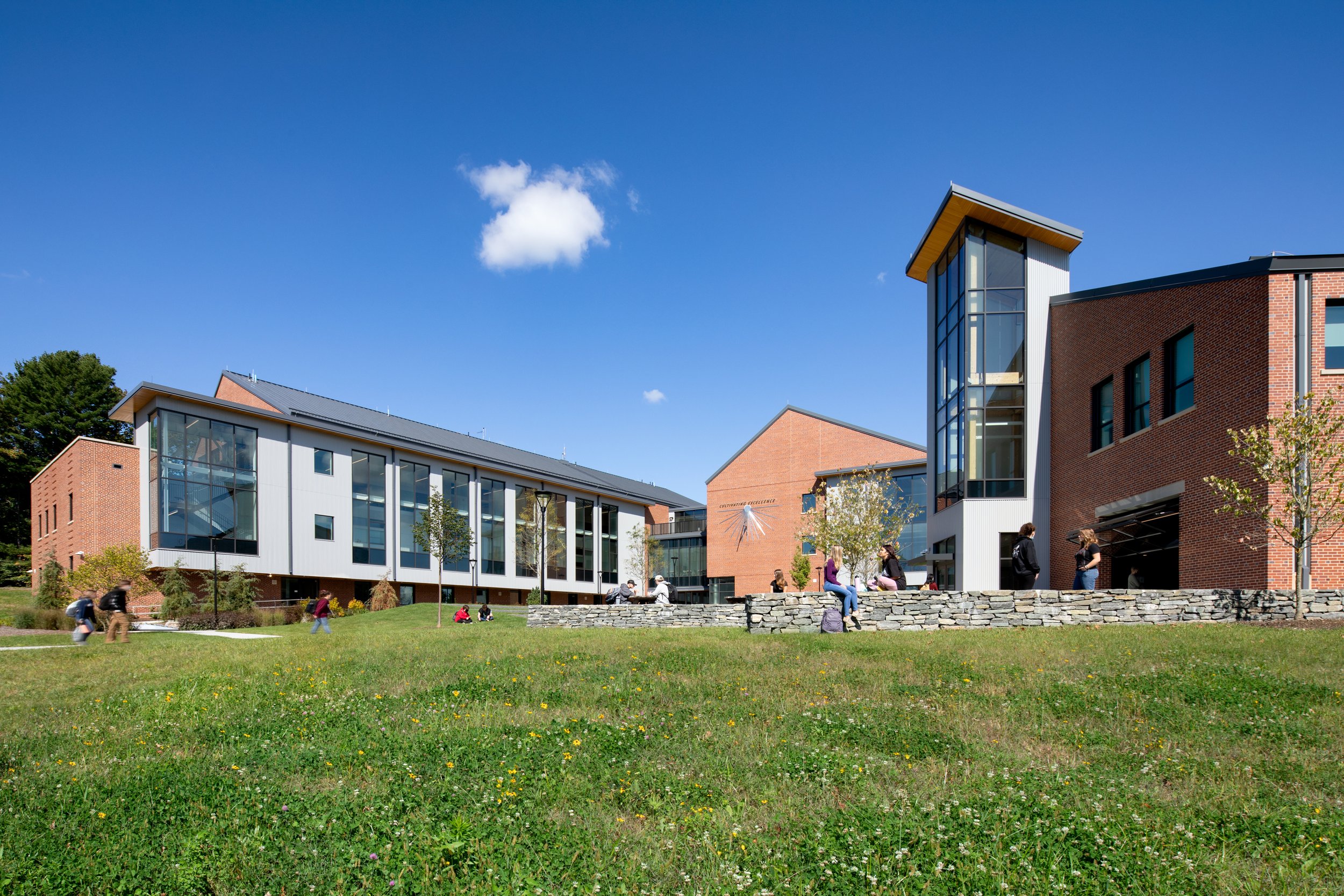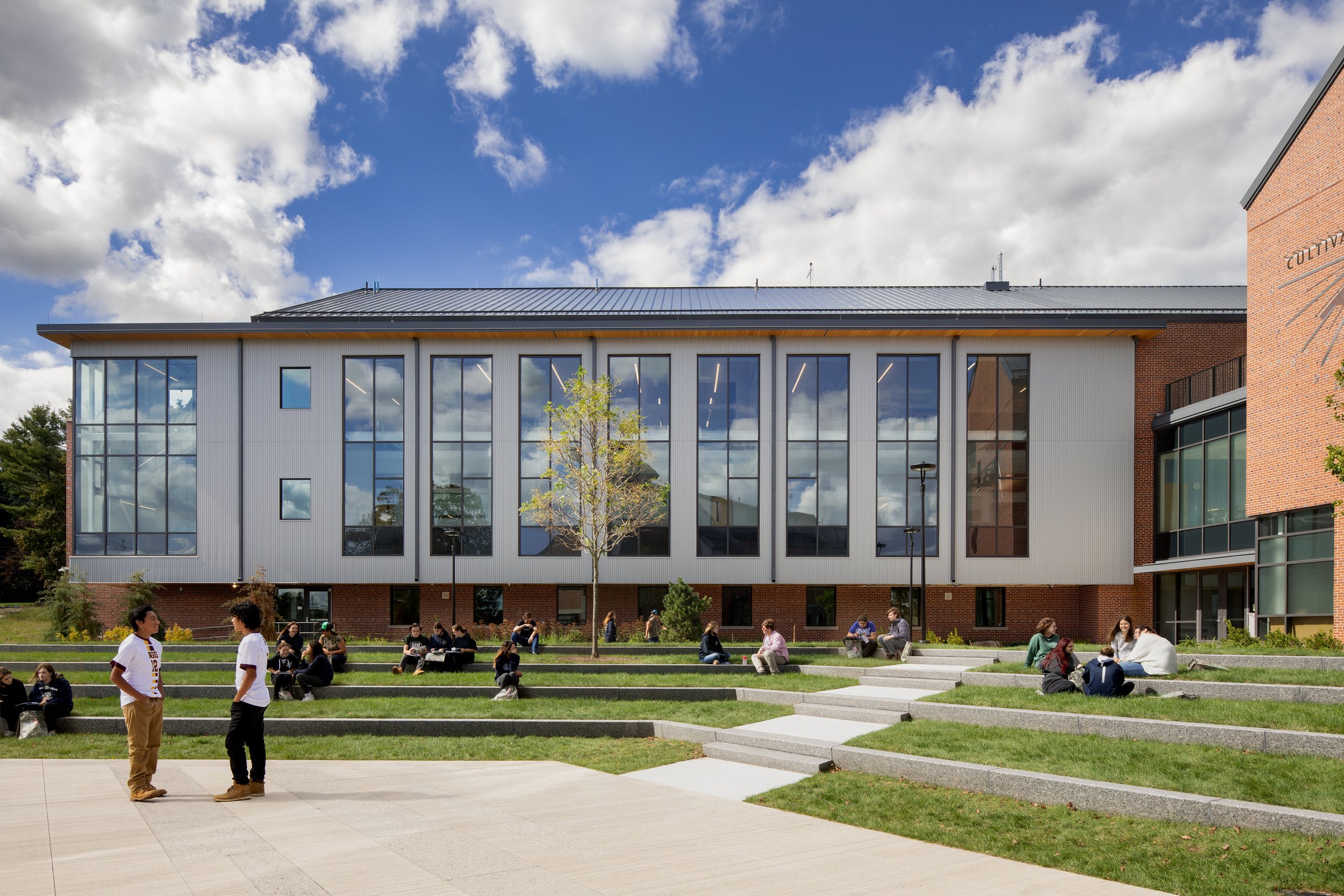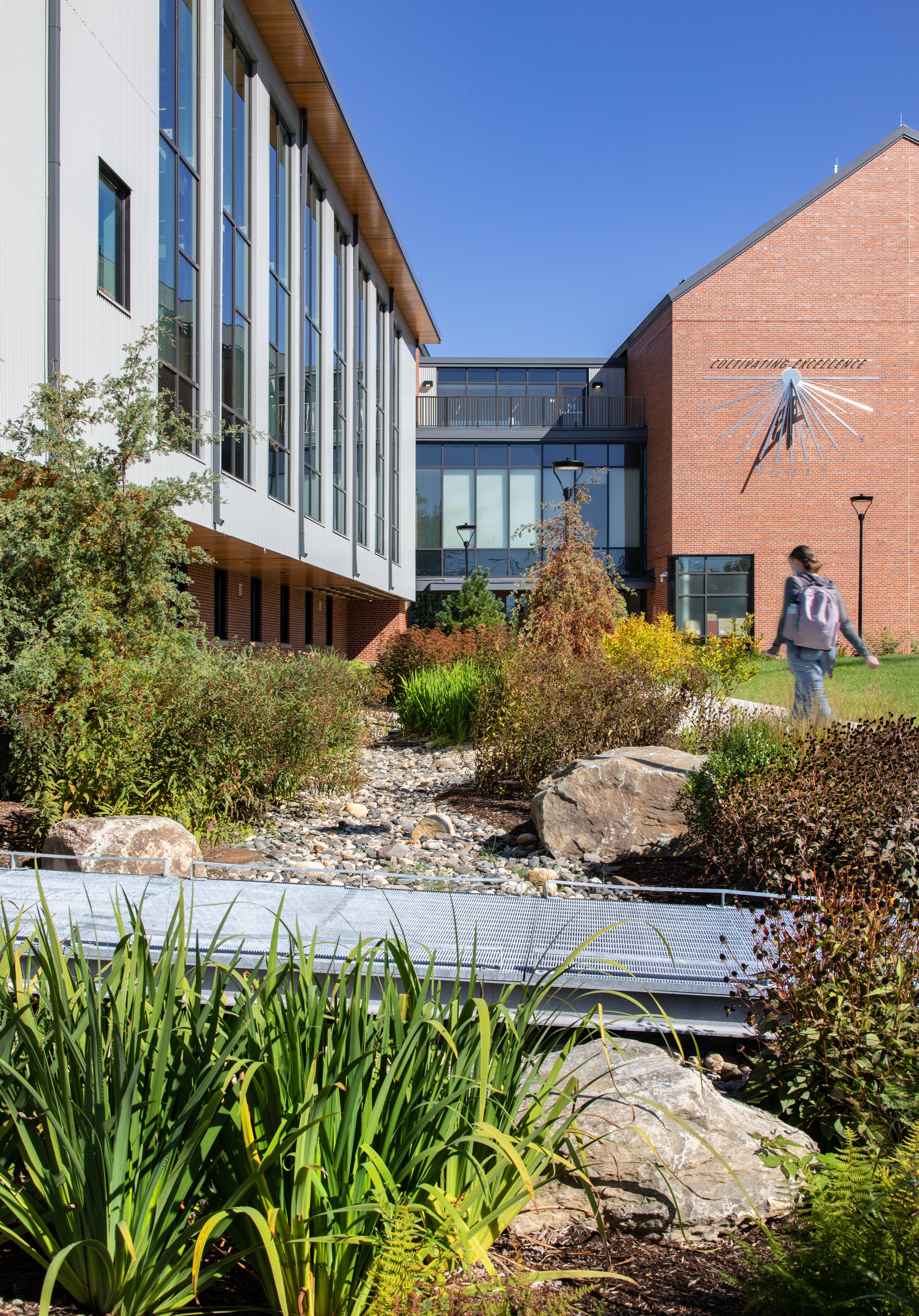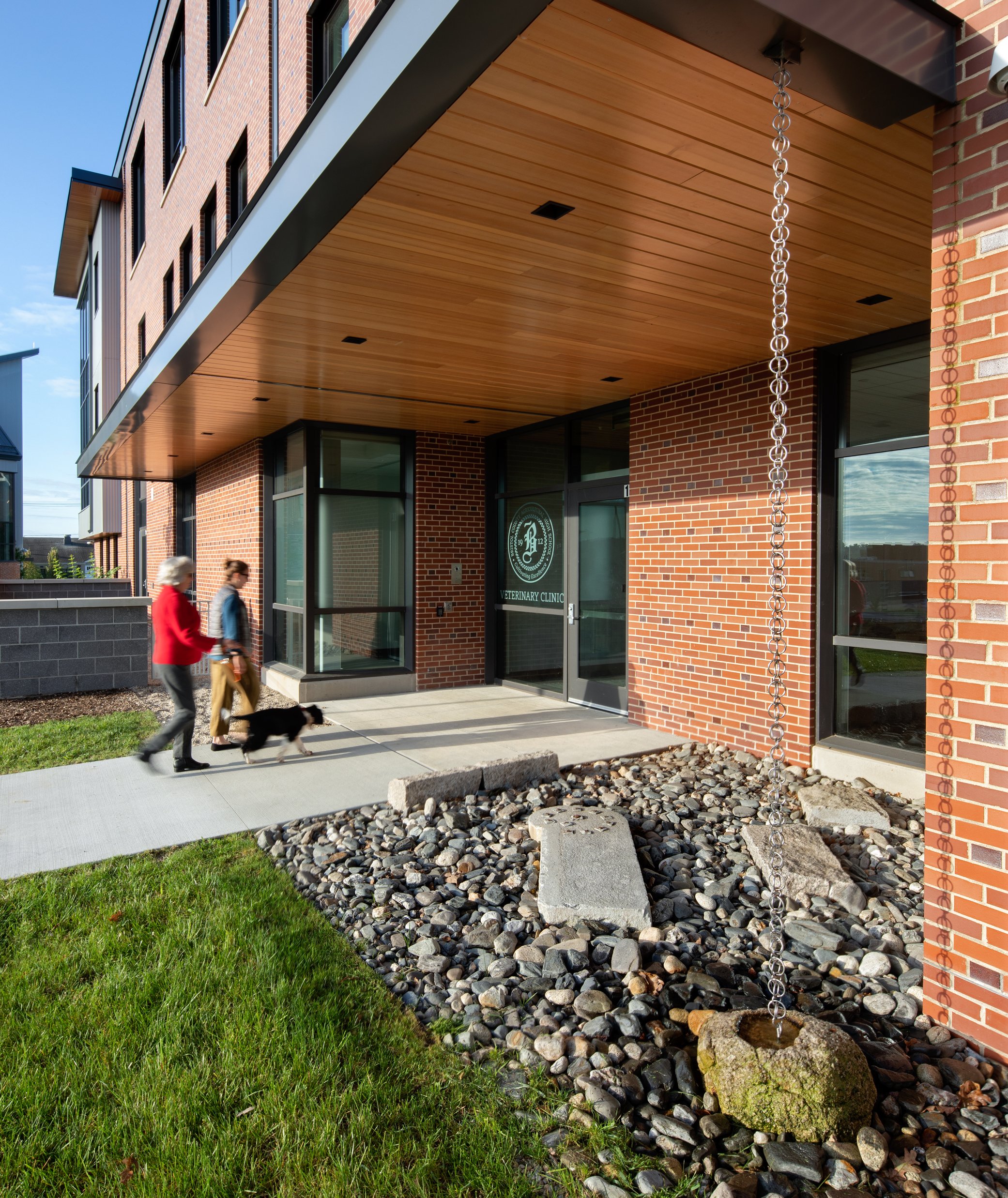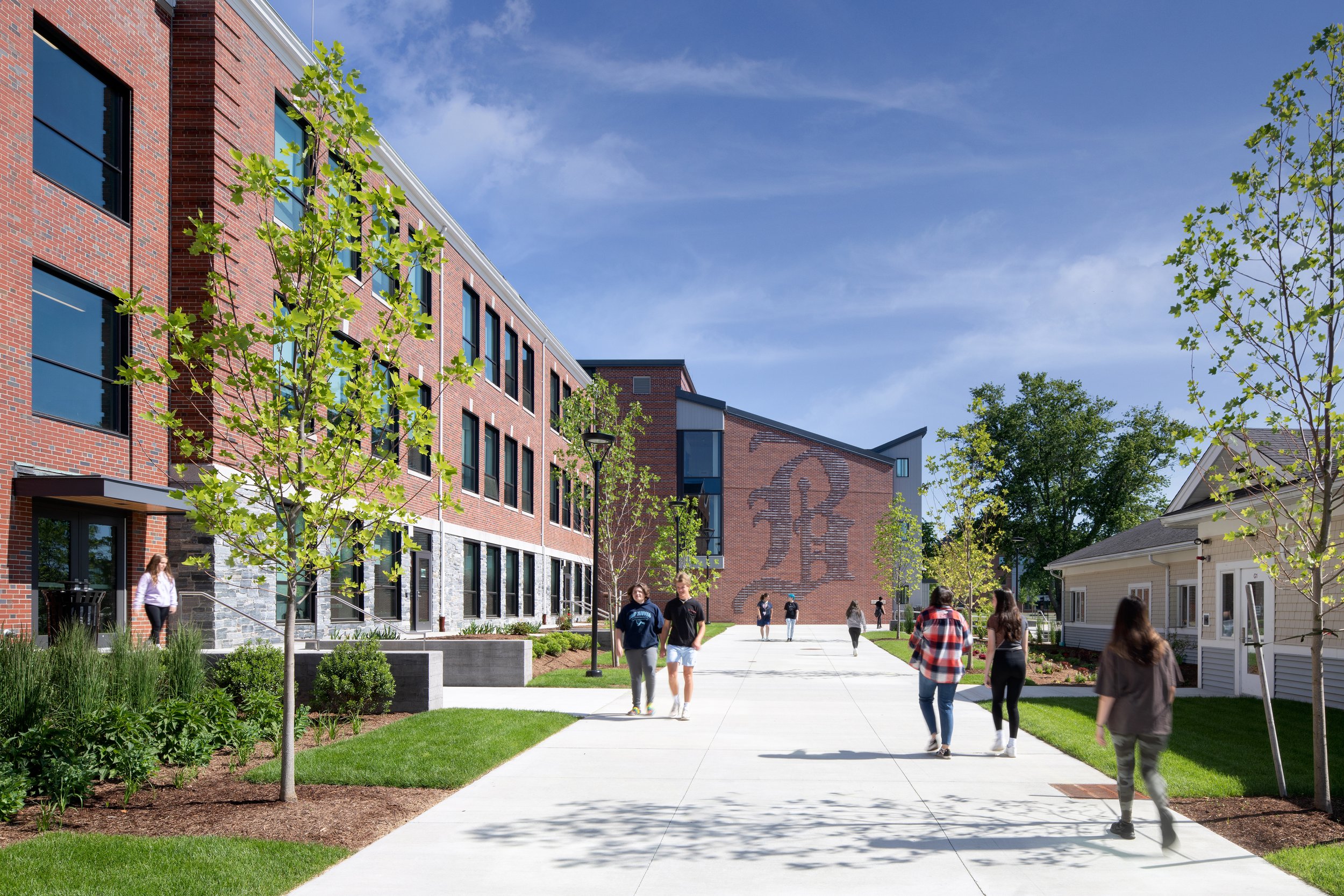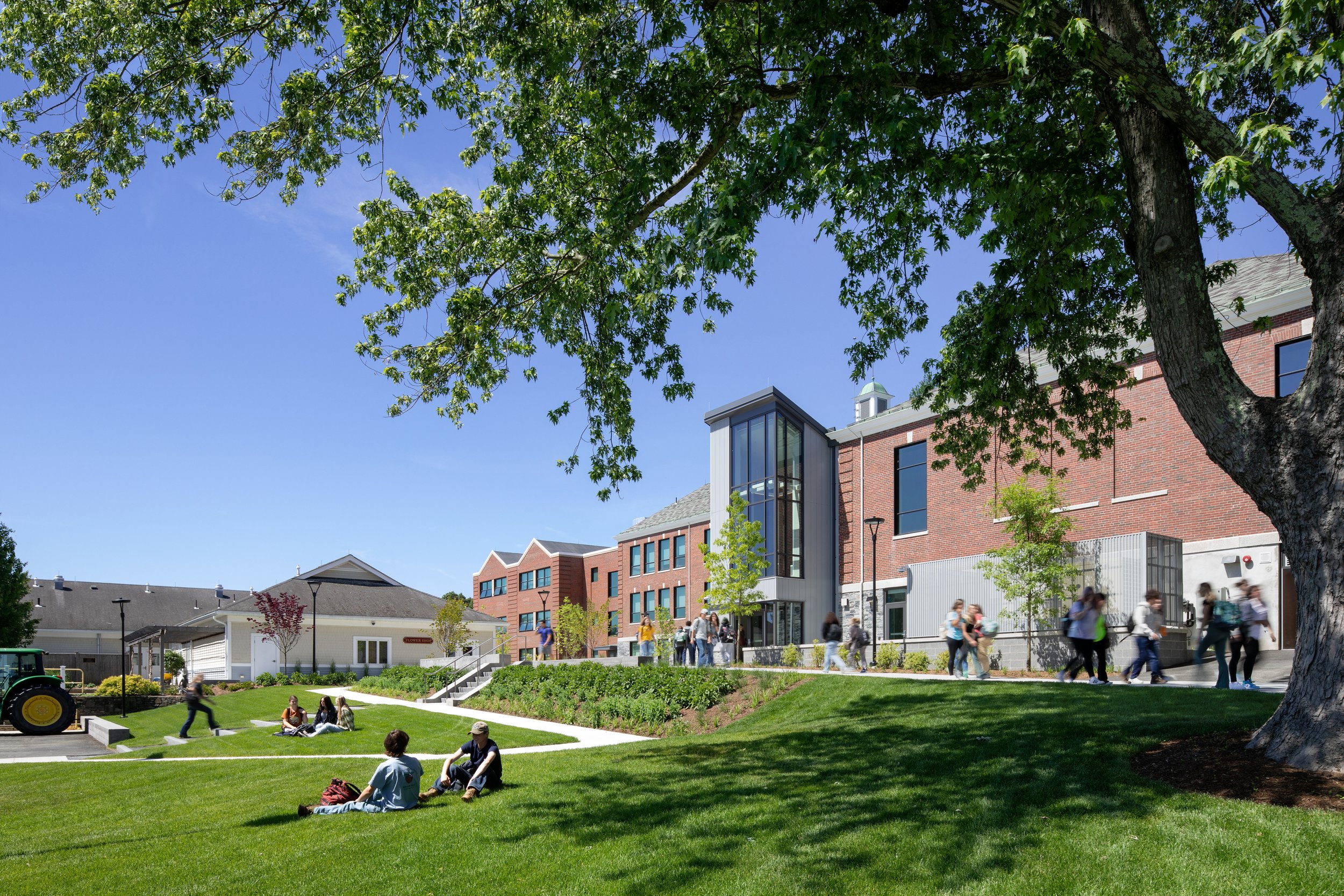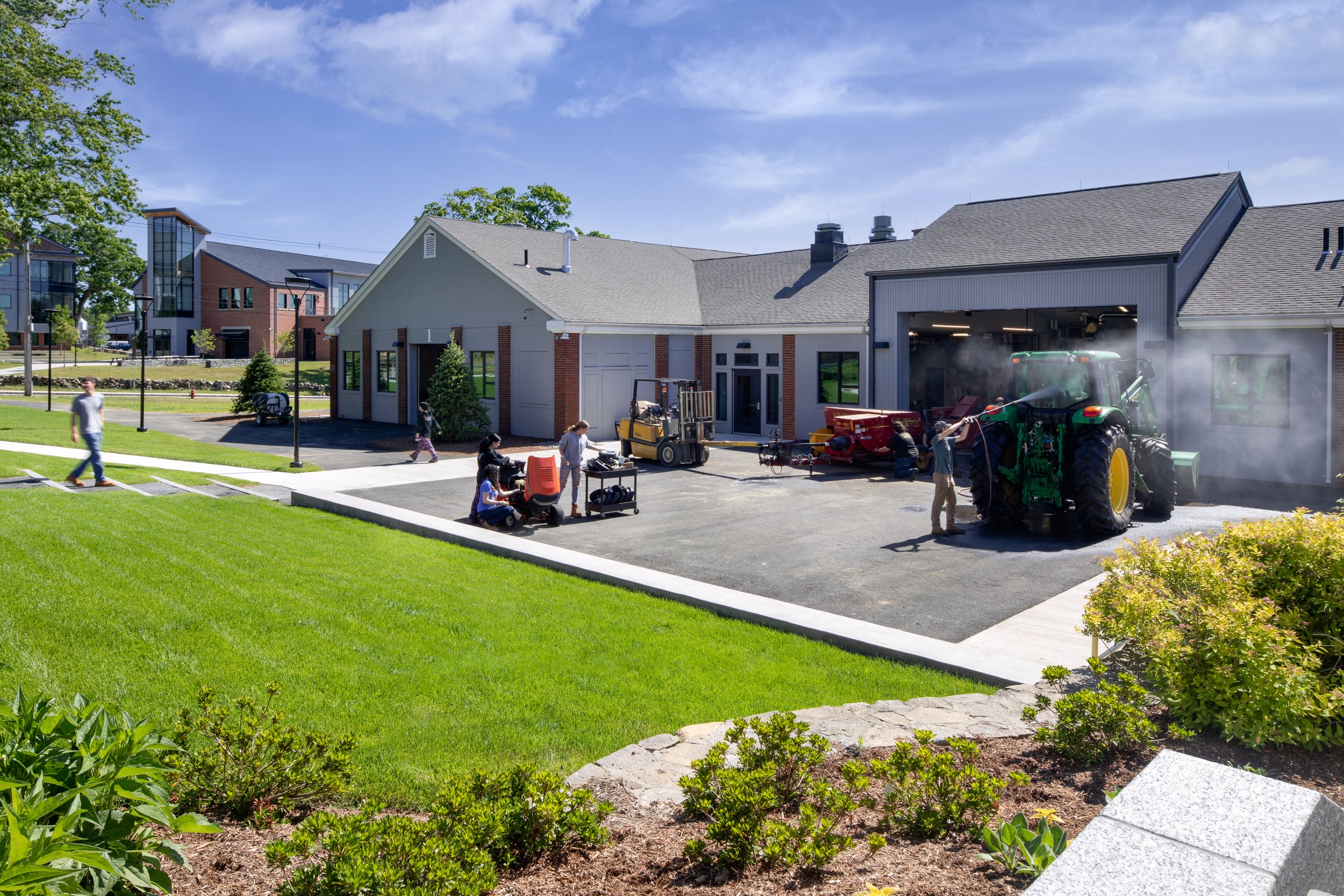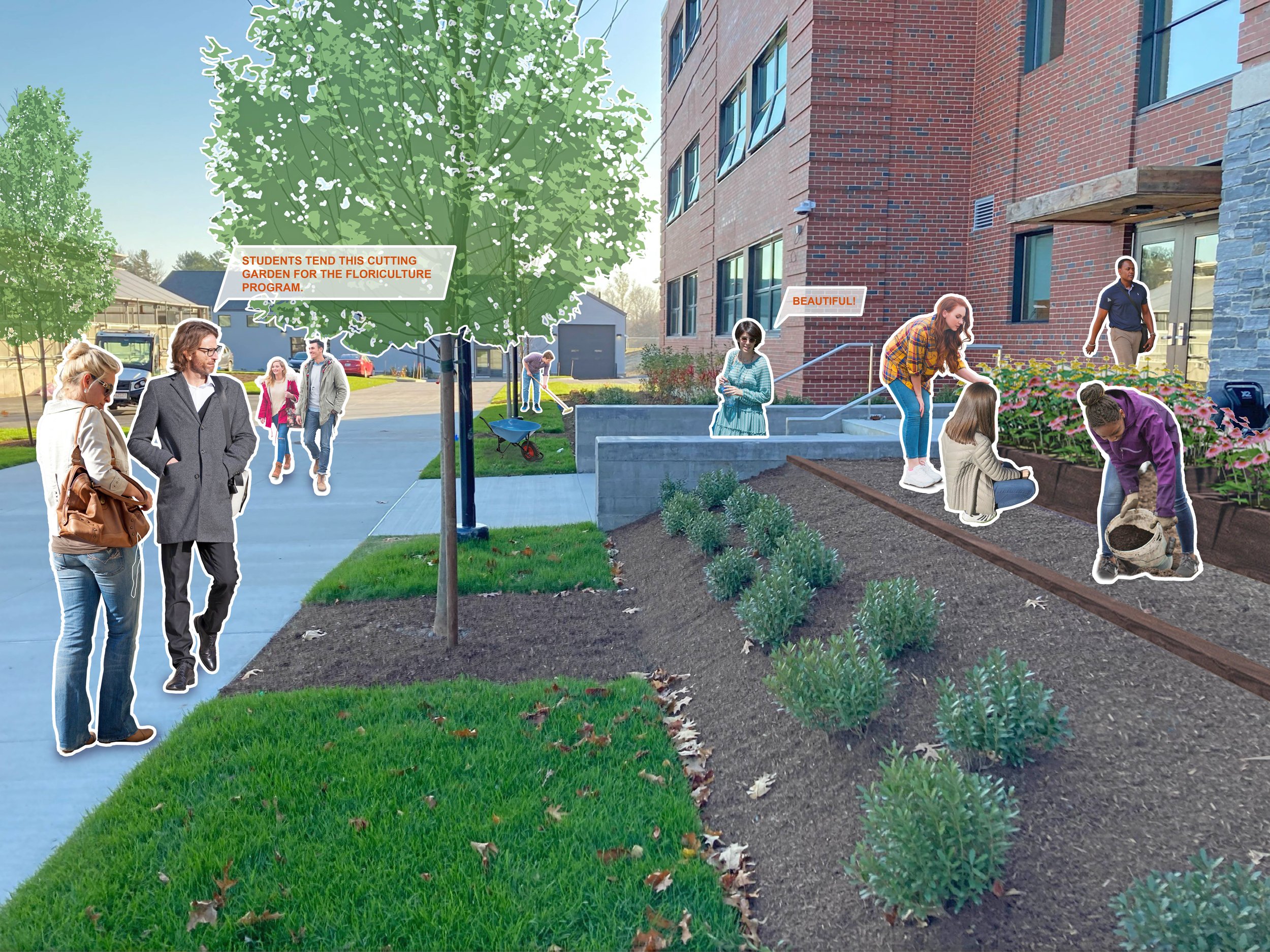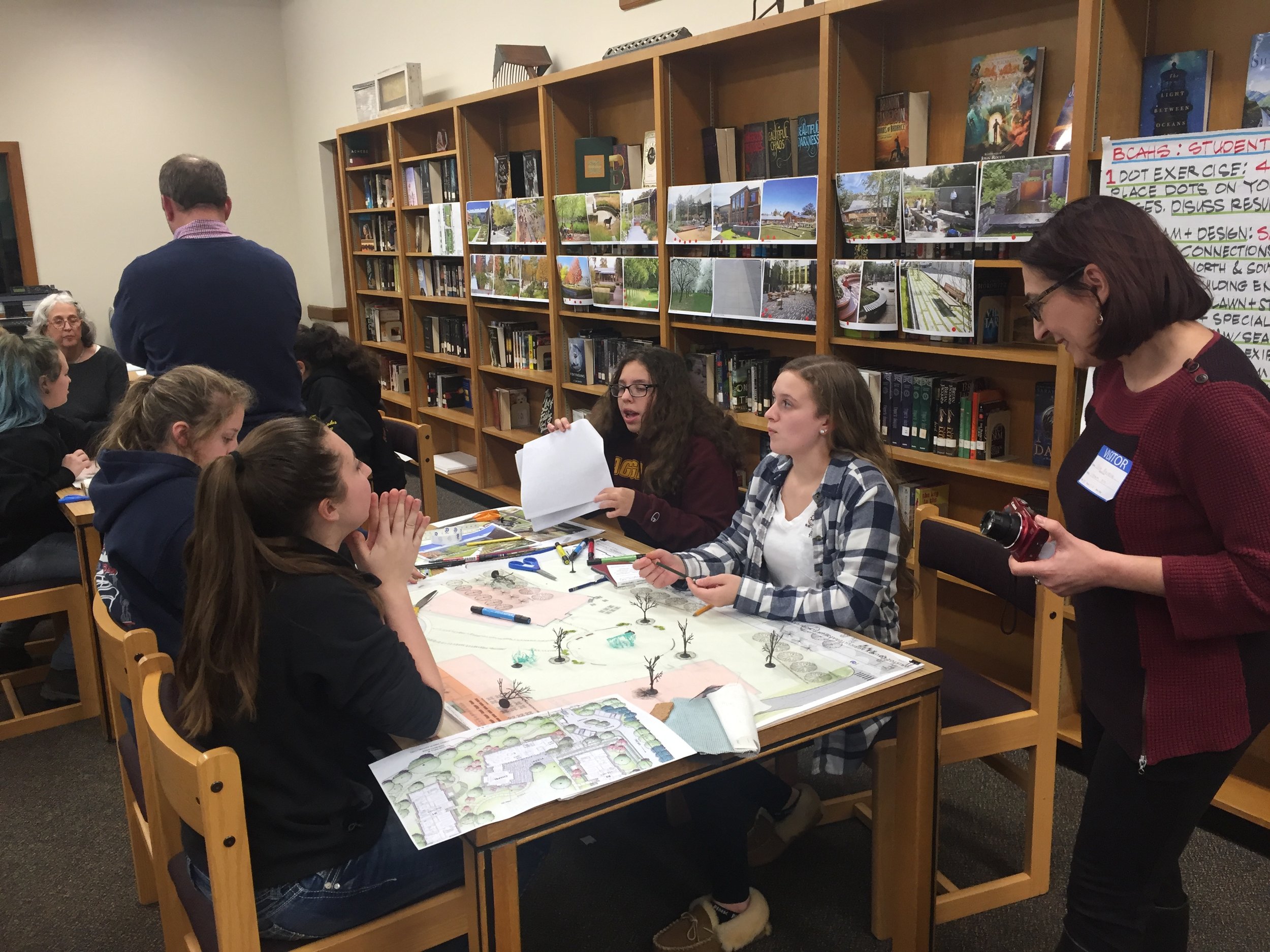Principal Landscape Architect Vesna Maneva and Halvorson | Tighe & Bond Studio emeritus Cynthia Smith accept the Merit Award for General Design.
On Tuesday, May 21, the Boston Society of Landscape Architects (BSLA) presented our landscape architects with a Merit Award in General Design for their work on the campus redesign of Bristol County Agricultural High School in Dighton, MA. The renovations to the 270-acre campus, led by HMFH Architects, were supported by extensive landscape design work by Halvorson | Tighe & Bond Studio which thoughtfully integrated both existing and new buildings within the school’s setting as a working farm.
The transformation of the campus included several new buildings on North Campus, including the Center for Science and the Environment, Dairy Barn, and Student Commons. South Campus also received an extensive redesign, with new landscaped features and an Arbor/Landscape workshop. The campus landscape connects North and South Campuses with an accessible pedestrian corridor, while promoting outdoor interaction and education with new plazas, a lawn amphitheater, and hands-on growing areas.
Established in 1912, Bristol County Agricultural High School (also known as Bristol Aggie) has a unique and historic landscape character, which our landscape architects sought to preserve through design. Stone rubble walls, mature trees, and expansive views toward the Taunton River all serve to connect the campus to its rural setting. Great care was taken to protect existing trees, among them sugar maple, red oak, European beech, and Japanese maple specimens, and especially the giant silver maple at the South Campus entrance – an iconic landscape feature, but also a “climbing tree” for the Arboriculture program.
Unique to the school’s mission is its long-time focus on environmental protection and managing natural resources. Sustainable design was a top project objective, for buildings and the site, and two sub-projects were designed to achieve LEED Gold certification. Stormwater conservation and management was addressed through multiple strategies. These include the harvesting of rainwater in a 40,000-gallon cistern, which is reused for irrigating the central quad, and the use of non-irrigated meadows and drip irrigation elsewhere. Robust stormwater infiltration measures include series of bioswales for runoff from roadways and parking lots, and the dry swale landscape feature for the roof runoff.
During design, our landscape architects engaged with students from the Arbor and Landscape programs to brainstorm ideas for the campus landscape and identify different species of trees, which will be installed by the students to add to the existing campus arboretum. The students’ ideas and observations helped articulate the design of the outdoor spaces. Today, the students and faculty use those same outdoor spaces daily for class instructions and projects, socializing over recess and lunch, and proudly inviting the public for events like Farm to Feast and the popular Fall Show.
Project Highlights
Project photography by Ed Wonsek.


